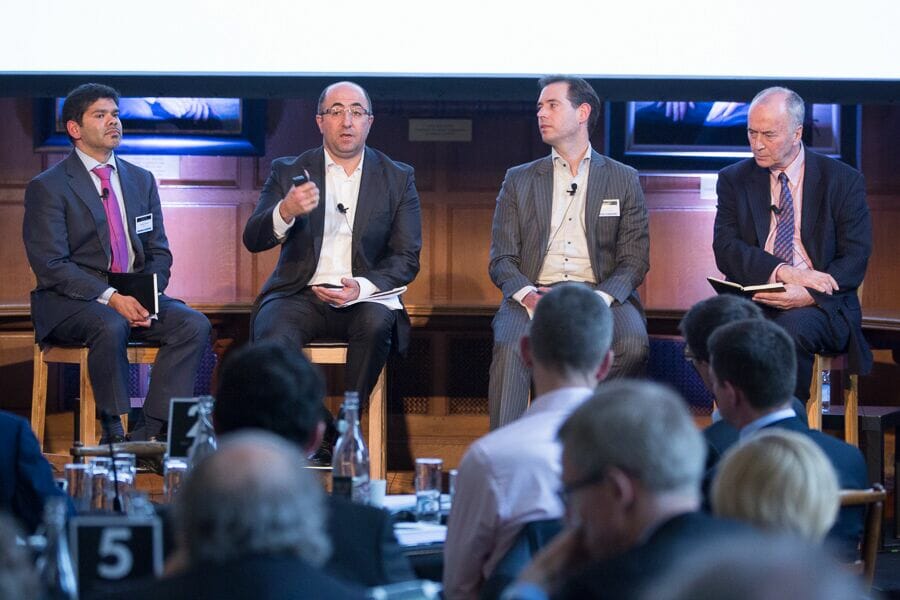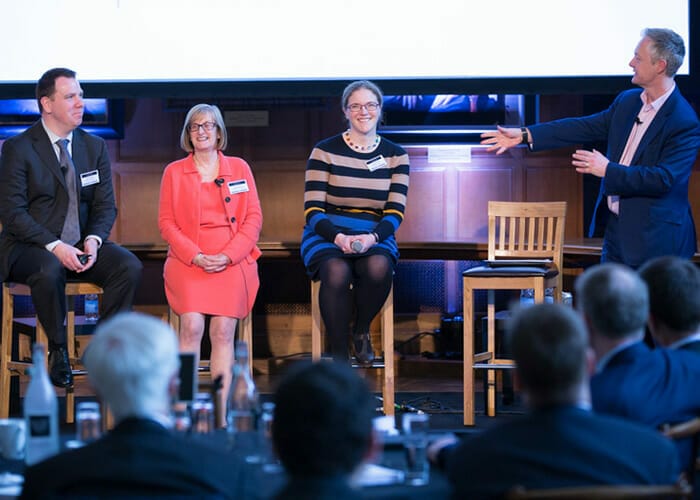Technology is transforming infrastructure and investors need to adapt to new risks and opportunities, said Danny Elia, executive director and global head of asset management, infrastructure, at IFM Investors in Australia.
Infrastructure lies in the ‘set-and-forget’ investment category, but huge changes are under way, visible in the biometrics, new check-in processes and smart cameras now installed across IFM’s 16 airport assets, he said.
Elia spoke during a session at the Fiduciary Investors Symposium at the University of Oxford earlier this month. He outlined the steps infrastructure investors could take to prepare for technology’s impact, informed by IFM’s own two-year journey to meet this challenge in its infrastructure portfolio. The firm began by overhauling its in-house capabilities and culture to embrace technological change. This included engaging Sanjay Sama, vice-president for open learning at the Massachusetts Institute of Technology, to challenge the way the asset manager thought about technology and infrastructure.
“He’s really shaken up our culture and thinking,” Elia said. “When we thought something hadn’t happened yet, he’d say it happened yesterday and it’s already too late.” Other steps included improved data and information gathering, and significant up-skilling of staff.
T-shaped skills
Training employees to better understand the technological challenge ahead was a recurring theme at the session. Investment management requires so-called T-shaped skills. The vertical bar in the T represents the depth of related skills and expertise in a single field, whereas the horizontal bar is the ability to collaborate across disciplines with experts in other areas.
“Experts are not necessarily specialists but apply themselves to technology and understand it from self-study,” said Roger Urwin, global head of investment content at Willis Towers Watson in the UK. “It is an important feature because as we have become more specialised, we have lost our ability to have perspective across the whole ecosystem.”
Recruiting technology specialists into the investment industry is challenging, given the competition from the tech sector, said Eran Raviv, quantitative analyst at Netherlands-based APG Asset Management.
“Tech giants are young companies and asset management is an old industry,” Raviv said. Compliance and regulation in investment make adapting to technology difficult and time-consuming, he added.
Opportunities and dangers
Infrastructure investors comfortable with embracing technology will find opportunities, such as the current trend amongst governments to privatise assets to off-load the risks associated with technological change. But technology can be transient and requires huge investment; introducing expensive new systems in the energy sector, for example, could force electricity prices up, which would be unpopular with consumers and governments, Elia said. Also, because infrastructure is regulated, change involves consultation with governments and workers. Investors should also look at the construction of their portfolios to ensure a diversity of infrastructure assets so they aren’t all at risk of disruption.
New technology is changing infrastructure investors’ relationships with their customers said Elia, who pointed to IFM’s toll-bridge assets as an example to illustrate how lines have been redrawn.
“It used to be a case of sitting there with a transponder and charging your customers,” Elia said. “Now you’ve got Cisco, Google, Apple and credit-card companies coming into that space to charge your customers, too.”
Elia also brought up investors’ responsibility to manage the loss of jobs due to technology.
“Job displacement is about to go on steroids,” he said. “What responsibility do we have to manage this, given where our money actually comes from?”
Technology promises to disrupt more than just individual asset classes; it will affect broader asset management, too.
Neiloy Ghosh, director of client service at Inalytics, argued that artificial intelligence was poised to disrupt traditional investment with new ways of thinking.
“The history of disruption tells us incumbents don’t win – it is the new entrants that win,” Ghosh said. “The Achilles heel of the investment management industry is its cost model; revenues are under pressure and costs are static.”
Ghosh said AI would produce the same results as some traditional asset management but with much lower revenues and fees because the intellectual property is machine based.




